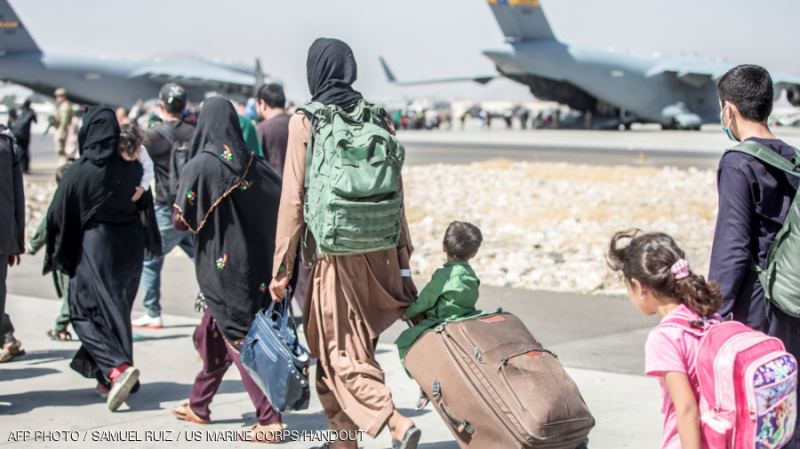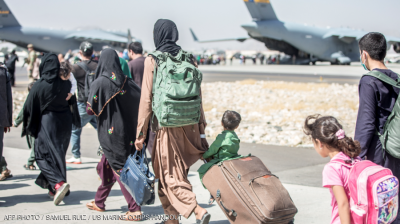Bashari Ghazrawi is one of those who fled Afghanistan through Kabul Airport as the Taliban took control of the country. Ghazrawi and his family have currently settled in Istanbul, Turkey. He told "Sky News Arabic": "I used to run a training center for young people in vocational work in the electrical field, for homes and companies." He added, "Each student underwent practical and theoretical training for an entire year at the institute I managed with my wife, as we are both graduates with master's degrees in electrical engineering."
He said, "Since the Taliban took control of some areas in the south, and with news emerging about their intention to pursue anyone who collaborated with foreigners, and considering that our institute received support from some international organizations, fearing for my family's future, we all left for Iran, from where we arrived in Turkey, and we are waiting for our resettlement in another country."
The situation of Ghazrawi's family is representative of hundreds of thousands of Afghan citizens with higher education and technical and economic skills, accumulated by Afghan society over the years, forming the social and intellectual capital of the country, and managing public institutions and private knowledge sectors in the country. However, these brains have drastically diminished in recent days, as skilled individuals make up a large percentage of those leaving Afghanistan via Kabul, and it is believed their departure will have significant repercussions on the country.
Afghan political researcher Seraad Mujgai told "Sky News Arabic": "The Taliban is fully aware that this class will be among the most objectionable Afghan groups to the movement's rule, and their absence makes Afghan society under Taliban rule more likely to comply." He added: "The Taliban prefers this, despite the difficulties it will face in managing the country and international relations, as well as the infrastructure and institutions without these Afghan intellectual elites."
From the 1950s to the 1970s, Afghanistan experienced a significant educational renaissance in various fields; however, with the Soviet invasion in the late 1970s, thousands of educated Afghans fled the country, to the point where Afghanistan was entirely devoid of individuals with higher university degrees during the Taliban's near-total control of the country in 1996. Experts predict that the same situation will recur today under Taliban pressure, alongside the possibility of a civil war.
Moreover, they expect that Afghanistan will lose what it achieved in educational progress after 2001, when the rate of education and its quality increased in various sectors, even leading to women representing two out of every five university graduates in the country. Afghanistan's higher education budget was nearly half a billion dollars annually in recent years, mostly coming from donor countries and the government budget, benefiting more than 120,000 Afghan students across various university disciplines, including graduate studies, with 35,000 of those being female students, particularly in the fields of humanities, education, and literature.
The numbers released by the Afghan Ministry of Higher Education indicated that there are more than 2,500 university lecturers in the country, with nearly half that number being graduates of international universities. However, the most significant figure is the estimated number of Afghan university graduates, which UNESCO approximates to be around 600,000, most of whom are unwilling to submit to Taliban rule, and the vast majority are considering fleeing the country.




